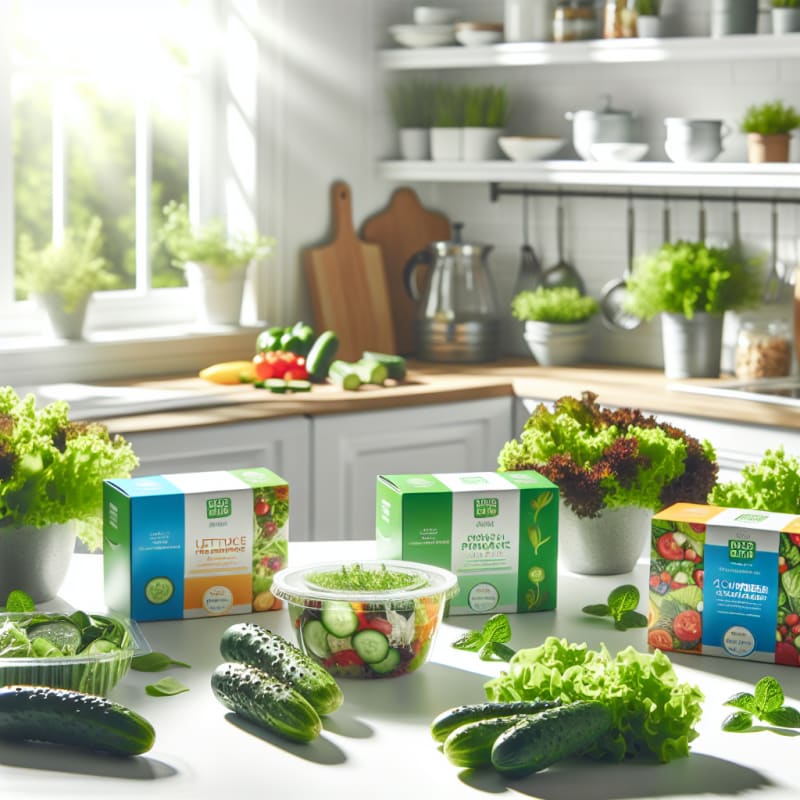Ready-Made Salad Kits Recalled in 25 States: What You Need to Know
Food safety is a top concern for shoppers, especially when it comes to ready-made products like salad kits. Recently, a significant recall of salad kits affected 25 U.S. states, raising questions about ingredient transparency, allergen risks, and how consumers can make safer choices. This article breaks down the recall, compares regulatory approaches, and offers actionable tips for anyone interested in understanding food ingredients—whether for health, dietary, or ethical reasons.
Salad Kit Recall: Overview and Impact
According to AOL.com, ready-made salad kits distributed across 25 states have been recalled due to possible contamination with Listeria monocytogenes, a bacteria that can cause serious illness. The recall was initiated after routine testing detected the pathogen, prompting immediate action by the manufacturer and the U.S. Food and Drug Administration (FDA).
| State | Recall Status |
|---|---|
| California | Affected |
| Texas | Affected |
| Florida | Affected |
| New York | Affected |
| Illinois | Affected |
Key Facts:
- Contaminant: Listeria monocytogenes
- Recall Scope: 25 U.S. states
- Health Risks: Listeriosis (especially dangerous for pregnant women, elderly, immunocompromised individuals)
- Recommended Action: Do not consume affected products; check FDA recall list
Food Safety Alerts: Staying Informed
This recall is part of a series of recent food safety alerts. For example, FDA’s recall database and CNN Health both highlight the importance of staying up-to-date on recalls, especially for products with high-risk ingredients. In Europe, the European Food Safety Authority (EFSA) issues similar alerts, but with stricter allergen labeling requirements.
Ingredient Labeling Laws: U.S. vs. EU Comparison
| Region | Allergen Disclosure | Ingredient Transparency | Recall Procedures |
|---|---|---|---|
| United States (FDA) | Top 9 allergens must be declared (e.g., milk, eggs, nuts) | Ingredients listed in descending order by weight | Voluntary recalls, public alerts via FDA |
| European Union (EFSA) | 14 allergens must be declared (e.g., celery, mustard, lupin) | Stricter requirements for additives, origin labeling | Mandatory recalls, rapid alert system |
For consumers with food sensitivities or ethical concerns, understanding these differences can help prevent accidental exposure and support informed choices.
Emerging Food Trends and Regulatory Changes
Recent news highlights a shift toward plant-based and keto-friendly salad kits, as well as increased scrutiny over ingredient sourcing and sustainability. For example, FoodNavigator-USA reports that brands are reformulating products to meet new dietary regulations and consumer demand for transparency. These changes impact ingredient lists, allergen labeling, and even packaging materials.
How Food Scan Genius Simplifies Smart Food Choices
With recalls and labeling laws constantly evolving, tools like the Food Scan Genius app (download here) make it easier to scan products for allergens, dietary preferences, and ethical concerns. The app uses up-to-date databases from FDA, EFSA, and other authorities to flag recalls and ingredient risks in real time.
User Testimonial: “I have a severe nut allergy and follow a vegan diet. Food Scan Genius helped me quickly identify safe salad kits—even during this recall. I recommend it to anyone who wants peace of mind while shopping.” – Jamie R., Chicago, IL
Frequently Asked Questions
What should I do if I bought a recalled salad kit?
Do not consume the product. Check the FDA recall list and return the item to the store for a refund. If you experience symptoms of listeriosis, contact your healthcare provider immediately.
How can I stay updated on food recalls?
Subscribe to FDA and EFSA alert systems, check trusted news sources, and use apps like Food Scan Genius to receive real-time notifications.
Are labeling laws different in the U.S. and EU?
Yes. The EU requires more allergens to be disclosed and has stricter ingredient transparency rules compared to the U.S.
How does Food Scan Genius help with food sensitivities?
Food Scan Genius scans product barcodes and ingredient lists, flags allergens, recalls, and supports custom dietary preferences for safer shopping.
Conclusion: Making Smart Food Choices in a Changing Landscape
Whether you’re buying salad kits or any ready-made food, understanding ingredients and staying informed about recalls is essential for health and peace of mind. Regulatory differences between the U.S. and EU highlight the importance of reading labels and using technology to bridge gaps in transparency. With tools like Food Scan Genius, anyone can simplify smart food choices—no matter their dietary needs or ethical concerns.
Stay safe, stay informed, and let technology help you make the best decisions for your health and values.
References:





